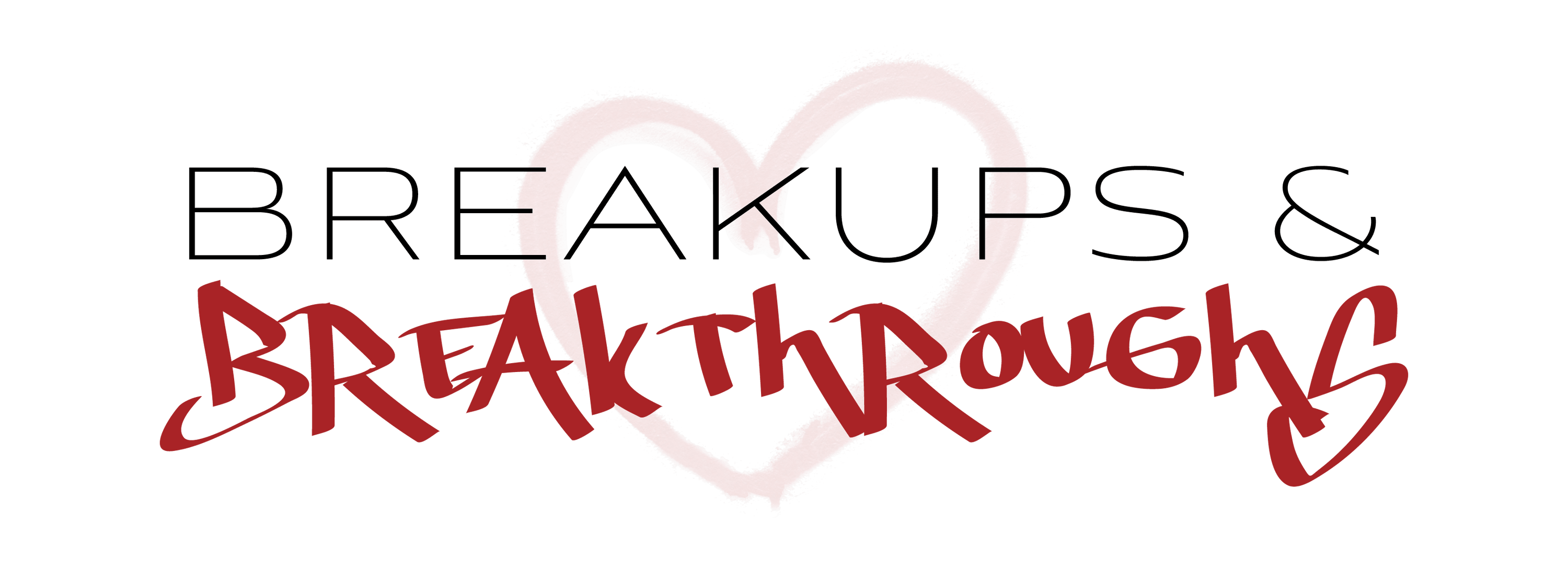Let’s face it, breakups are tough. Whether you’re the one walking away or being walked out on, the end of a relationship can feel like a world-shattering moment. But here’s the deal—breakups don’t have to define you. They’re part of life, and sometimes, they’re even necessary for growth. So, buckle up, because we’re diving deep into the world of breakups, exploring everything from why they happen to how you can heal and emerge stronger.
Now, before you roll your eyes and think this is just another sob story about heartbreak, let me tell you something. Breakups are more than just a chapter in your love life—they’re lessons, wake-up calls, and opportunities to rediscover yourself. And yeah, they hurt like hell, but isn’t that what makes them so powerful?
So, why are we talking about breakups? Because they’re one of the most universal experiences out there. Whether you’re 18 or 80, chances are you’ve been through at least one breakup. And if you haven’t, well, let’s just say it’s probably coming. But don’t freak out—we’re here to guide you through it with some real talk, expert advice, and a dash of humor.
Read also:Cleveland Cavaliers Urged To Consider Stunning Trade
What Exactly Is a Breakup?
Let’s start with the basics. A breakup is essentially the dissolution of a romantic relationship. It’s when two people decide—mutually or otherwise—that their journey together has come to an end. And trust me, it’s not always as simple as it sounds. Breakups come in all shapes and sizes, from the sudden and dramatic to the slow and gradual. But no matter how it happens, the emotional impact can be intense.
Some common signs that a relationship might be heading toward a breakup include constant arguments, lack of communication, growing apart, or even infidelity. And while some breakups are inevitable, others can be avoided with a little effort and understanding. But hey, that’s a topic for another day.
Why Do Breakups Happen?
Let’s get real here—breakups don’t just happen out of nowhere. There’s usually a reason behind them, whether it’s something you did, something the other person did, or a combination of factors. Here are some of the most common reasons relationships break up:
- Irreconcilable Differences: Sometimes, people just grow in different directions, and no amount of compromise can bridge the gap.
- Communication Issues: If you’re not talking openly and honestly with your partner, problems are bound to arise.
- Trust Issues: Whether it’s due to infidelity or simply a lack of transparency, trust is the foundation of any relationship.
- Unmet Expectations: Everyone has their own idea of what a relationship should look like. When those expectations aren’t met, it can lead to dissatisfaction.
And let’s not forget about external factors like distance, stress, or even family interference. Sometimes, the world just conspires against us, and relationships fall apart as a result.
How to Handle a Breakup
Okay, so you’ve just gone through a breakup. Now what? First things first, give yourself permission to feel. Whether you’re angry, sad, confused, or all of the above, it’s okay to let it out. But remember, wallowing in self-pity won’t help you move forward. Here are some tips for handling a breakup:
1. Accept the Reality
Denial is a powerful thing, but it’s not going to help you heal. Accept that the relationship is over and that it’s time to move on. This doesn’t mean you have to forget about the good times, but it does mean acknowledging that those times are in the past.
Read also:Tesla Stock Price The Inside Scoop On Whats Driving The Electric Giant
2. Lean on Your Support System
You don’t have to go through this alone. Reach out to friends, family, or even a therapist if you need someone to talk to. Sometimes, just having someone listen can make all the difference.
3. Take Care of Yourself
Breakups can take a toll on your mental and physical health, so it’s important to prioritize self-care. Eat well, exercise, and get enough sleep. And yeah, it’s okay to indulge in some comfort food or a good cry every now and then, but don’t let it become a habit.
4. Reflect on the Relationship
Take some time to reflect on what went wrong and what you can learn from the experience. This doesn’t mean you should dwell on the negative—it’s about gaining insight and growing from the experience.
Breaking Down the Emotional Stages of a Breakup
When you go through a breakup, you’re bound to experience a range of emotions. These emotions can be overwhelming, but they’re also a natural part of the healing process. Here’s a breakdown of the emotional stages you might go through:
- Shock and Denial: At first, you might find it hard to believe that the relationship is really over. This is your brain’s way of protecting itself from the pain.
- Anger and Resentment: Once the initial shock wears off, you might start feeling angry or resentful toward your ex. This is normal, but try not to let it consume you.
- Sadness and Grief: After the anger comes the sadness. You might find yourself grieving the loss of the relationship and all the hopes and dreams you had for the future.
- Acceptance and Moving On: Finally, you reach a point where you’re ready to let go and move on. This doesn’t mean you forget about the relationship, but it does mean you’re ready to start a new chapter in your life.
When Should You Seek Professional Help?
Let’s be real—some breakups are harder to recover from than others. If you find yourself struggling to cope, it might be time to seek professional help. A therapist or counselor can provide you with the tools and support you need to heal and move forward.
Some signs that you might need professional help include:
- Persistent feelings of sadness or hopelessness
- Difficulty functioning in daily life
- Thoughts of self-harm or suicide
- Substance abuse as a coping mechanism
If you’re experiencing any of these symptoms, don’t hesitate to reach out for help. You’re not alone, and there are people who care about you and want to help.
Breaking the Cycle: How to Avoid Future Breakups
So, you’ve gone through a breakup and you’re ready to move on. But how do you make sure it doesn’t happen again? Here are some tips for avoiding future breakups:
1. Communicate Openly and Honestly
One of the biggest reasons relationships fail is due to a lack of communication. Make sure you’re always honest and open with your partner about your feelings and needs.
2. Set Realistic Expectations
Everyone has their own idea of what a perfect relationship looks like, but the reality is that no relationship is perfect. Set realistic expectations for yourself and your partner, and be willing to compromise when necessary.
3. Build Trust and Respect
Trust and respect are the foundation of any successful relationship. Make sure you’re always trustworthy and respectful toward your partner, and expect the same in return.
4. Work on Yourself
Relationships are a two-way street, and both partners need to be willing to work on themselves. Whether it’s improving your communication skills or working through your own emotional baggage, self-improvement is key to building a strong relationship.
Breaking Up in the Digital Age
In today’s digital world, breakups can be even more complicated than they used to be. Social media, texting, and online dating apps have changed the way we form and end relationships. Here are some tips for navigating breakups in the digital age:
- Unfollow or Mute: If seeing your ex’s updates on social media is too painful, consider unfollowing or muting them. You don’t need that kind of drama in your life right now.
- Limit Contact: It’s tempting to text or call your ex after a breakup, but resist the urge. Give yourself some space to heal before reconnecting.
- Be Mindful of Online Behavior: Remember that anything you post online can be seen by anyone, including your ex. So, think twice before venting your feelings on social media.
Breaking Up and Mental Health
Breakups can have a significant impact on your mental health, especially if the relationship was long-term or particularly intense. Here are some ways to protect your mental health during and after a breakup:
1. Practice Mindfulness
Mindfulness techniques like meditation and deep breathing can help you stay grounded and reduce stress during a breakup.
2. Stay Active
Exercise is a great way to boost your mood and reduce anxiety. Whether it’s a run in the park or a yoga class, staying active can help you feel better both physically and mentally.
3. Connect with Others
Social connections are crucial for mental health, especially during tough times. Make an effort to spend time with friends and family, and don’t be afraid to reach out if you need support.
Breaking Up: The Bottom Line
Breakups are never easy, but they don’t have to define you. With the right mindset and support, you can heal, grow, and emerge stronger on the other side. Remember, every relationship—no matter how it ends—is an opportunity to learn and become a better version of yourself.
So, what’s next? Take a deep breath, give yourself permission to feel, and start taking steps toward healing. And hey, don’t forget to share your thoughts and experiences in the comments below. You never know—you might just inspire someone else going through the same thing.
Table of Contents
- What Exactly Is a Breakup?
- Why Do Breakups Happen?
- How to Handle a Breakup
- Breaking Down the Emotional Stages of a Breakup
- When Should You Seek Professional Help?
- Breaking the Cycle: How to Avoid Future Breakups
- Breaking Up in the Digital Age
- Breaking Up and Mental Health
- Breaking Up: The Bottom Line
And that’s a wrap, folks. Breakups may hurt, but they’re also part of the journey. Keep moving forward, and remember—you’ve got this.

